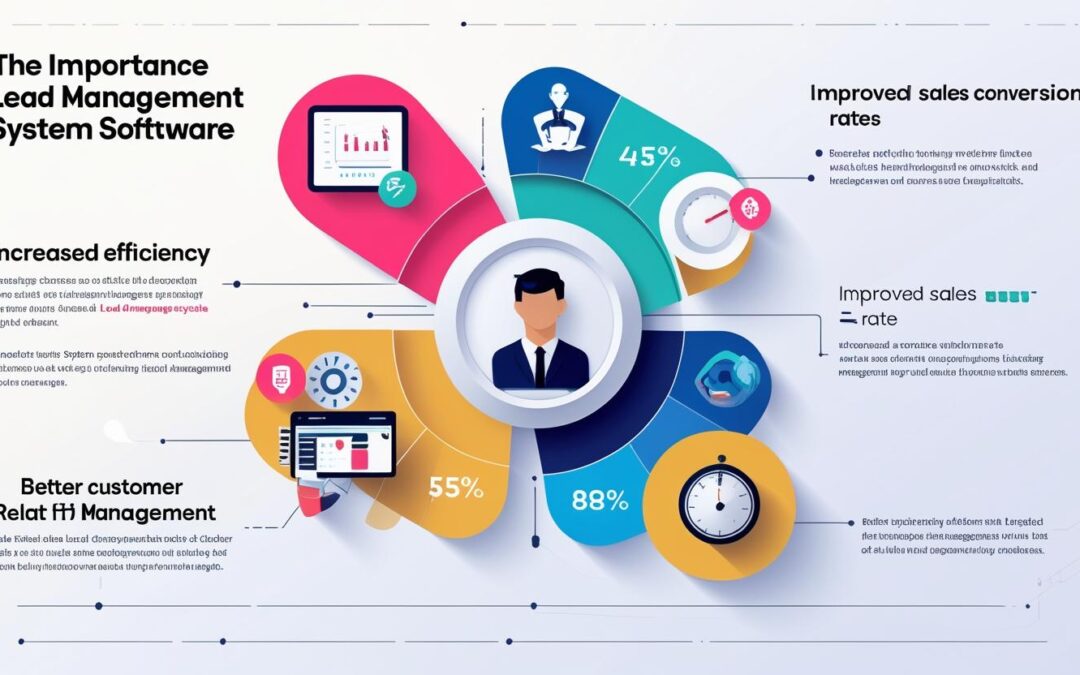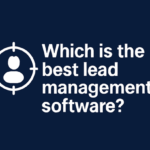What Is a Lead Management System?
A lead management system software is a centralized platform designed to manage the entire customer acquisition lifecycle—from capturing and tracking leads to qualifying, nurturing, and converting them into paying customers. The system provides structure and visibility across the lead funnel, ensuring that no potential customer slips through the cracks.
In today’s fast-paced digital economy, where businesses spend huge budgets generating leads, the real success lies in how well you manage those leads. A lead management system software transforms a chaotic sales process into a structured, data-driven engine for revenue growth.
Why Businesses Need Lead Management Software
Managing leads effectively is more than just organization—it’s strategic. Without a lead management system, sales reps often rely on messy spreadsheets, manual tracking, or memory, leading to:
-
Missed follow-ups
-
Lost deals
-
Poor customer experience
-
Decreased ROI
A solid lead management system software helps businesses:
-
Avoid lead leakage
-
Increase response speed
-
Assign leads smartly
-
Track each interaction
-
Prioritize high-potential leads
According to Harvard Business Review, companies that contact a lead within the first hour are 7x more likely to qualify them. That timing edge is only possible with automation and structure—both core to any good lead management system software.
Benefits of a Lead Management System
1. Centralized Lead Data
A lead management system software acts as a single source of truth. No more data scattered across emails, Excel sheets, or sticky notes. Everything is stored in a searchable, secure environment.
2. Speedier Response Times
With real-time alerts and automation, your sales team can respond within minutes, giving you a massive edge over competitors.
3. Lead Prioritization & Scoring
Leads can be ranked based on behavior, engagement level, and other parameters. Your reps then know exactly who to call first.
4. Personalized Nurturing Campaigns
By integrating with email marketing tools, you can send customized sequences that speak to where the lead is in their journey.
5. Robust Reporting and Analytics
Understand which campaigns generate the most qualified leads, identify bottlenecks, and make data-driven decisions.
6. Workflow Automation
Automate tasks like follow-up reminders, lead routing, and drip campaigns to eliminate human error and save time.
Key Features of Lead Management Software
When choosing lead management system software, ensure it includes:
-
Web forms & landing page integration
-
Lead scoring and segmentation
-
Smart routing & assignment
-
Integration with CRM, email, and calendar
-
Activity tracking and call logging
-
Custom dashboards
-
AI-based predictions and automation
-
Mobile access
-
Compliance & data security settings
These features allow businesses to scale lead management efforts without losing personalization or control.
Lead Management vs CRM: What’s the Difference?
| Feature | Lead Management System | CRM Software |
|---|---|---|
| Purpose | Focus on converting leads | Focus on customer retention |
| Scope | Top-of-funnel management | Full customer lifecycle |
| Functions | Capture, qualify, assign, nurture | Service, support, billing, up-sell |
| Integration | Often integrates with CRMs | May include basic lead tools |
While many CRM platforms have basic lead tools, a dedicated lead management system software provides deeper visibility and advanced automation to maximize conversions before the customer even enters your CRM ecosystem.
How Lead Management Systems Improve Sales Efficiency
Sales reps often spend only 35% of their time actually selling. The rest is consumed by:
-
Manual data entry
-
Follow-up scheduling
-
Lead assignment
-
Status tracking
A robust lead management system software:
-
Automates data capture and updates
-
Prioritizes tasks through intelligent alerts
-
Assigns leads to the right reps automatically
-
Reduces manual errors
-
Tracks performance and helps identify gaps
According to Salesforce, automation boosts sales productivity by up to 30%. That alone makes a compelling case for adoption.
The Role of Automation in Lead Management
Automation turns lead management system software into a proactive sales engine. Here’s what it can automate:
-
Lead capture from websites, emails, ads, and chatbots
-
Instant notifications to reps for hot leads
-
Drip email campaigns based on activity triggers
-
Auto-assignment based on territory or expertise
-
Follow-up tasks and reminders
Automation ensures no lead goes untouched and that your sales process becomes repeatable and scalable.
Top Lead Management Software in 2025
Here are the best lead management system software platforms for 2025:
1. HubSpot
-
Free forever CRM with strong lead tracking
-
Excellent email marketing & automation
-
Scalable for startups to enterprises
2. Zoho CRM
-
Budget-friendly with powerful customization
-
Ideal for SMBs
-
Great mobile app
3. Pipedrive
-
Visual sales pipelines
-
Easy to use
-
Strong automation for follow-ups
4. Freshsales
-
AI-based lead scoring
-
Seamless phone and email integration
-
Fast implementation
5. Salesforce Sales Cloud
-
Enterprise-grade
-
AI, advanced analytics, and robust workflows
-
Extensive third-party integrations
Each tool varies in pricing, complexity, and features, so align your choice with your business goals and team size.
Best Practices for Lead Management
To unlock the full power of your lead management system software, apply these practices:
-
Clearly define lead stages (cold, warm, hot)
-
Use scoring to identify priority leads
-
Automate follow-ups and task assignments
-
Regularly review reports to fine-tune performance
-
Train your team to use the tool properly
-
Integrate with marketing platforms for full funnel visibility
Success comes not just from having the tool but using it strategically and consistently.
How to Choose the Right Lead Management Tool
Here’s what to evaluate before purchasing:
1. Your Sales Process
Do you have a long sales cycle or short? Are your leads inbound, outbound, or both?
2. Budget
Look for flexible pricing models—some offer per-user plans, others offer freemium versions.
3. Integrations
Does it sync with your CRM, email platform, and marketing stack?
4. Scalability
Will the tool grow with your team?
5. Mobile & Remote Access
Crucial for field reps and remote sales teams.
6. Data Security
Check for encryption, role-based access, and compliance with GDPR/CCPA.
Most tools offer free trials—test before committing.
Conclusion
In a world flooded with digital noise, managing leads effectively is what separates thriving businesses from struggling ones. Investing in lead management system software ensures that your hard-earned leads are nurtured, converted, and retained.
It’s no longer enough to just generate leads. You must have a strategy—and system—in place to capture, qualify, and convert them into lifelong customers.
Lead management system software is the backbone of this strategy. With the right features, automation, and integrations, it doesn’t just organize your process—it transforms it into a growth machine.














